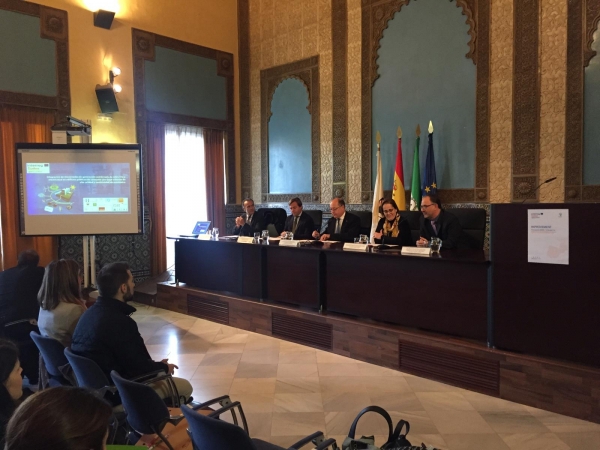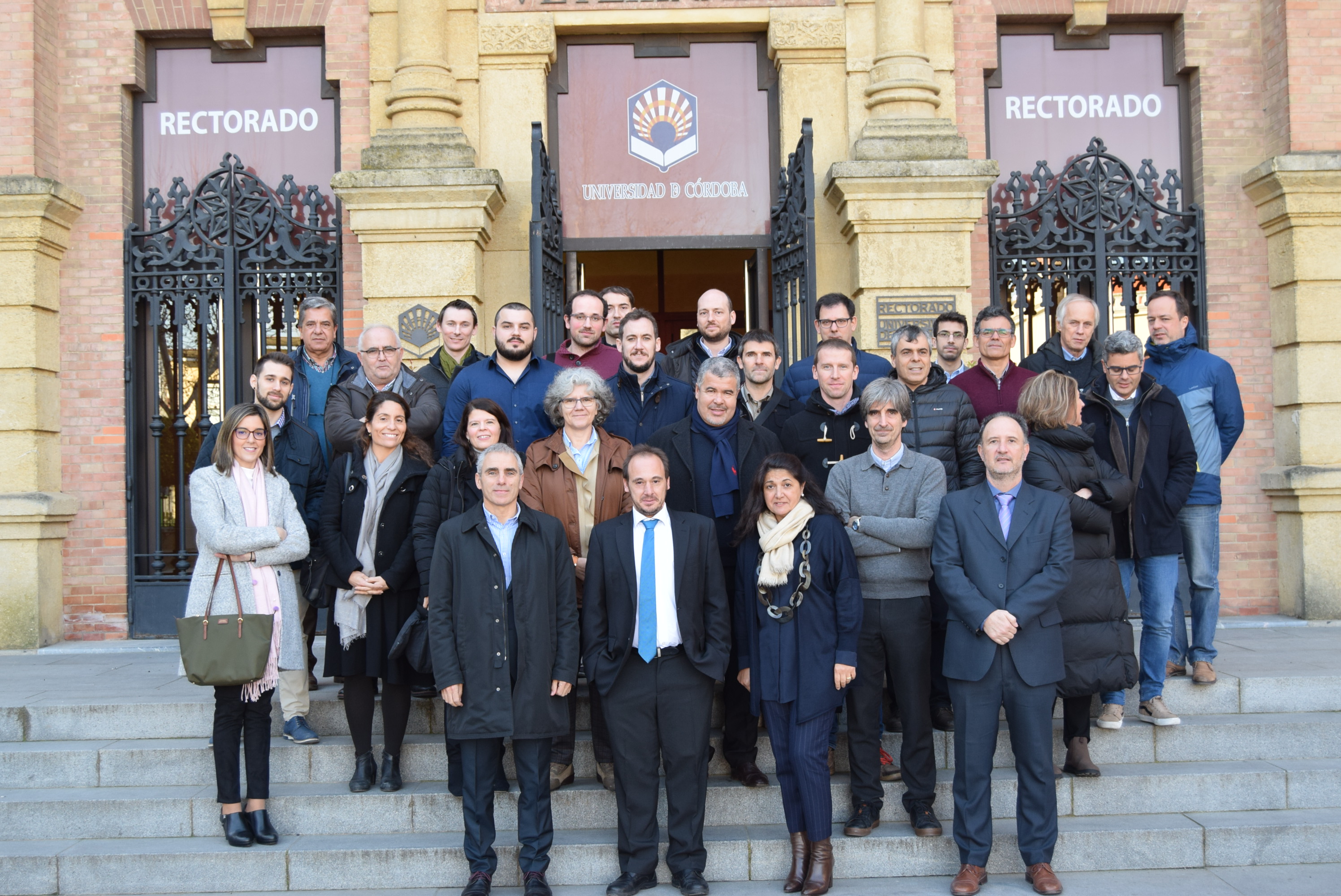European IMPROVEMENT project was launched at Cordoba University 16/01/2020

The first meeting of the European IMPROVEMENT, a project on zero energy balance public buildings, took place at Cordoba University. The project includes partners from Portugal, Spain and France, and aims to solve the challenge of integrating renewable energy systems (RE) and energy efficiency (EE) in public buildings (EPs) in the SUDOE region, where due to their application area, the quality and continuity of supply have to be considered as fundamental aspects (Hospitals, Research Centers and Universities, Military Buildings, Transport Stations). These buildings have a high energy consumption in heating and cooling, but also in electrical appliances that are extremely sensitive to electrical power disturbances.
The project is co-financed by the Interreg Sudoe Program, and will develop the necessary elements for the deployment of a new generation of combined cold micro-networks, heat and electricity based on advanced energy management systems with hybrid storage supported by hydrogen, batteries and super-condensers. These systems will be developed using predictive control techniques that guarantee the integration of renewable energies and the improvement of the energy efficiency of public buildings for their conversion into zero energy balance buildings (nZEB).
The University of Córdoba will be responsible for developing a power control system for micro networks with high supply quality requirements based on a network of intelligent IoT sensors and will collaborate with the University of Castilla La Mancha in the global definition of the system architecture, its basic dimensioning and the scope of the pilots to be developed. The project also involves the General Secretariat of Industry, Energy and Mines of the Junta de Andalucía, which will analyze the regulatory framework proposing the necessary recommendations to facilitate its adoption in the region; the Andalusian Energy Agency, which will analyze the applicability and requirements of the proposed solutions, will participate in its validation, once developed, and will elaborate specific plans to implement the results of the project through the Energy Network of the Junta de Andalucía (REDEJA); the Ecole Nationale Supérieure de Mecànique et Aèrotechnique and the Université de Perpignan (France), which will be responsible for the development of energy management systems for micro-networks with hybrid storage under minimum degradation criteria and prioritization of renewable consumption, through the realization of algorithms advanced; the Instituto Superior Técnico (IST/IN+) and the National Laboratory of Energy and Geology (LNEG), from Portugal.
The National Hydrogen Center (CNH2) will be responsible for one of the two pilots (in its experimental microgrid platform) where the different technical solutions devised in IMPROVEMENT will be tested and integrated. The other pilot, located in Lisbon, is the responsibility of LNEG and will integrate renewable heat/cold generation systems into a micro-network for the conversion of an existing public building into a zero-energy one.




